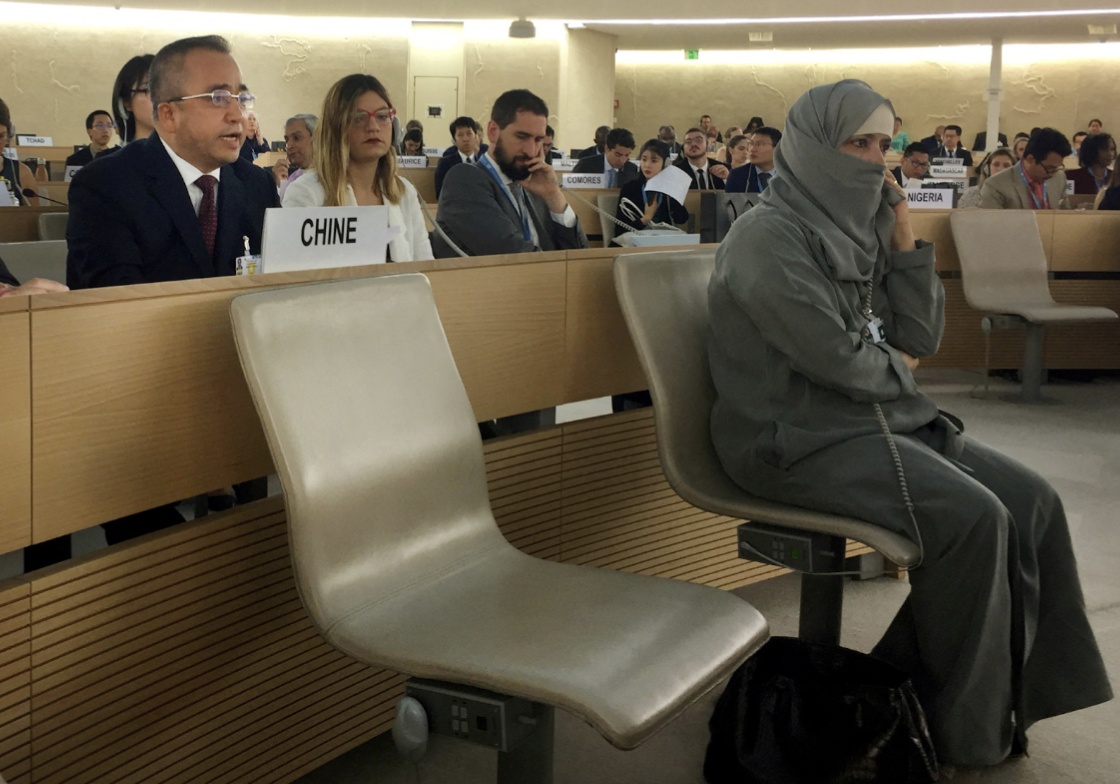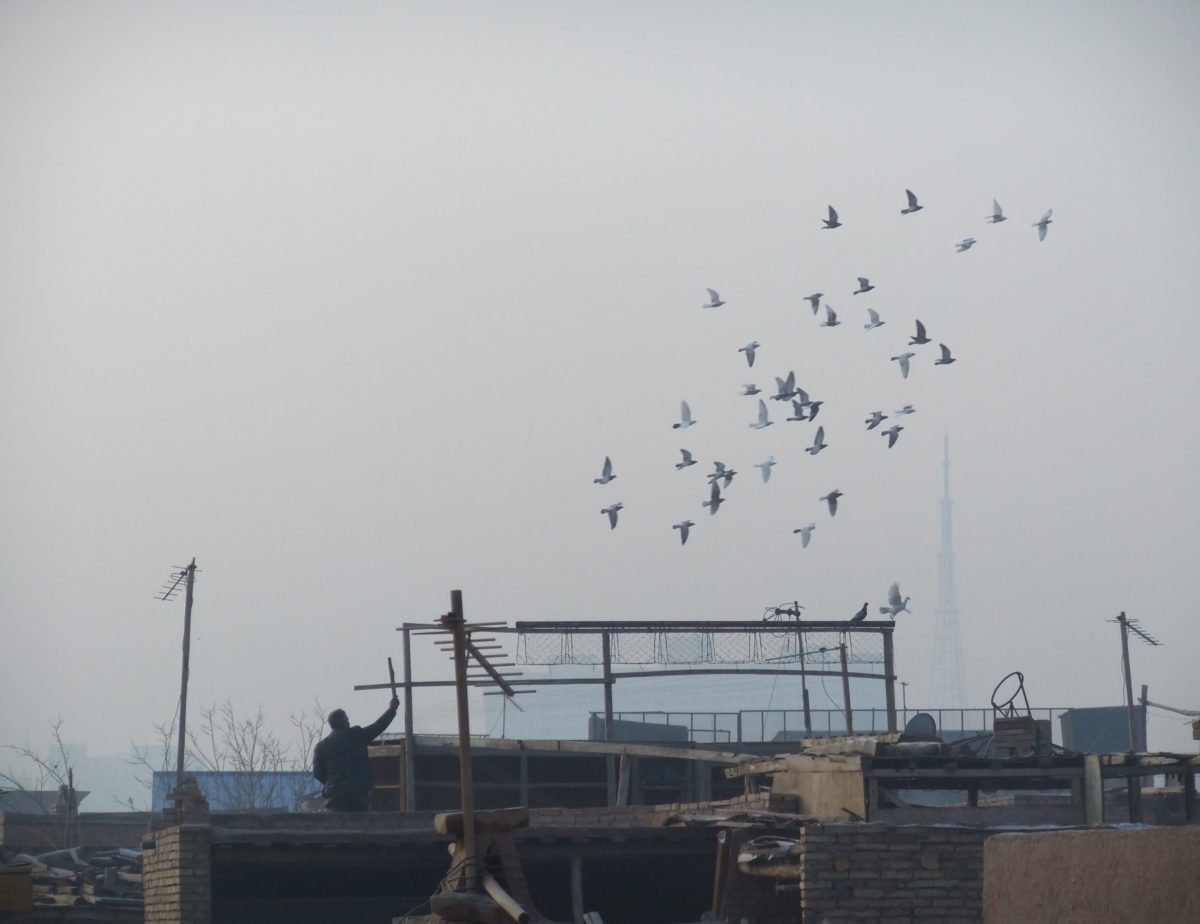Visit of top Xinjiang official to London, Paris, and Brussels canceled after uproar
Erkin Tuniyaz, the most senior Uyghur Party official working for the Xinjiang government, was supposed to visit at least three European capitals. The trip was ‘postponed’ after a multinational, cross-party hue and cry.

The proposed visit to the U.K. of Erkin Tuniyaz, the chairman of the Xinjiang Uyghur Autonomous Region, unleashed a rare stream of cross-party venom in the British parliament last week. Tuniyaz was scheduled to have talks with U.K. officials, and then go on to meetings in Paris and Brussels, apparently as part of a charm-offensive tour.
Parliamentary backbenchers called for the “rozzers” (police) to meet him at the airport, for him to be “clapped in prison for the rest of his life,” and for him to be sanctioned in line with the U.S. Department of Treasury’s 2021 listing of Tuniyaz as a Specially Designated National for his involvement in human rights abuses against Uyghurs and other Turkic Muslims. He is not currently on any British or EU sanctions list.
During the heated discussion, Tuniyaz’s proposed visit was variously described as “ill-judged,” “deeply worrying,” “a propaganda coup for the Chinese Communist Party,” and a sign of “serious lack of political leadership at the foreign office.”
Last week, a foreign office minister said Tuniyaz had not been invited by the U.K. and “would not have been ‘dignified’ with a ministerial meeting, but officials were prepared to meet him as part of ‘robust engagement’ over alleged rights violations.” News of the visit initially leaked from an unknown source, and was quickly picked up by activist groups and news organizations.
Condemnation was swift from British politicians and officials themselves. Alicia Kearns, the chair of the Foreign Affairs Committee and a Member of Parliament for the ruling Conservative Party, said that inviting the author of the atrocities rather than the victims for talks around the table risked causing “moral injury” to the Uyghur minority in the U.K. “The only meetings with him should be in a courtroom,” she said.
European officials were also displeased
Although there is growing distrust of China in the media and in political circles in Britain and the EU, the pushback against the visit was not directed broadly against China.
Samuel Cogolati, a member of Belgium’s Chamber of Representatives, was happy to talk about climate change and peace with China but was against the red carpet treatment for “a leader directly implicated in crimes against humanity against the Uyghurs.” Cogolati has previously called for funds to cease investing in Chinese entities accused of forced labor in Xinjiang.
Reinhard Bütikofer and Miriam Lexman, members of the European Parliament — and of the International Inter-Parliamentary Alliance on China (IPAC), which seeks to change the way democratic countries engage with Beijing — tweeted their disapproval of the visit. “While engagement with the PRC remains necessary in general,” they said, “we strongly question the wisdom of officially meeting with someone personally involved in the persecution of Uyghurs.”
What has Tuniyaz done in Xinjiang?
Erkin (or Arkin) Tuniyaz (艾尔肯·吐尼亚孜 / ئەركىن تۇنىياز) was born in 1961 in remote Aksu County, which is about 300 miles northeast of Kashgar, and roughly 600 miles southwest of the Xinjiang provincial capital, Ürümchi. He graduated from Changji College (formerly Changji Normal School), a university near Ürümchi, where he joined the Communist Youth League and began a lifelong career in the party-state.
From 1999 to 2005, he was the deputy director of the Organization Department of the Xinjiang Uyghur Autonomous Region (XUAR) Party Committee. The Organization Department is the secretive and powerful Communist Party organization responsible for personnel decisions. This means that Tuniyaz has a long history of being privy to the innermost secrets of the government of Xinjiang, where he seems to have spent his entire career. In January 2023, he was named chairman by the 14th People’s Congress of the Xinjiang Uyghur Autonomous Region. (This is not the most powerful position in the Xinjiang government — that role is the Party secretary, currently Mă Xīngruì 马兴瑞, who took on the role in 2021.)
So Tuniyaz must indeed know exactly what is going on in Xinjiang.
The best-known researcher on the Uyghur crisis, Adrian Zenz, published a cache of documents leaked to him, called the Xinjiang Police Files, which include documentation of Tuniyaz speaking to the XUAR Stability Maintenance Command headquarters in 2018. He exhorted that entity, “which oversees day-to-day police/security/camp operations, to ensure the ‘absolute security’ of the prisons and internment camps, and the ‘anti-escape’ measures…taken to prevent escapes from the camps.” In 2016, he attended an event demonstrating the “successful re-education of prisoners” who had been accused of terrorism and abusing Islam to promote separatism.
From enforcer to PR guy
China’s officials who deal with foreign affairs are well aware of the damage the Xinjiang crisis has caused to the government, and have for a number of years engaged in public relations and lobbying campaigns to change the narrative.
One of the most effective strategies has been to invite officials and scholars from Muslim countries on comfortable junkets to Xinjiang, where the cost of the accommodation is simply a soundbite or two. The most recent of these took place in January this year, when 30 Islamic scholars and experts from 14 Muslim nations visited Ürümchi and environs.
A related but less successful strategy has been to use Uyghurs as spokespeople for government policies. This is going on with disinformation campaigns on Twitter that try to pass themselves off as coming from ordinary Uyghur social media users (who somehow have access to Twitter, which is blocked in China).
Similarly, it seems that Erkin Tuniyaz, an ethnic Uyghur, has been tasked with a similar job: to act as the Uyghur face of Chinese government policy. At a UN event in Geneva in the summer of 2019, he said, “By setting up vocational education and training centers in accordance with the law, we aim to educate and save those who were influenced by religious extremism and committed minor legal offenses.”
Tuniyaz’s planned trip to European capitals seems to have been the latest move in this campaign to change minds.
Plan B
Before the visit was canceled, barrister and director of Lawyers for Uyghur Rights Michael Polak petitioned U.K. Attorney General Victoria Prentis, KC, for permission to prosecute, as “instructed by Mr. Otarbay Yerbakyt, the alleged victim of torture and other international crimes committed in the Uyghur Region.”
At a protest outside the Foreign Office on Monday January 13, activist and World Uyghur Congress chief in London Rahima Mahmut demanded that U.K. Secretary of State James Cleverly meet with Uyghur exiles.
“Back home, our women are forcefully sterilized, children are stolen from their parents, and millions of our people have been taken into concentration camps,” she said to a crowd of protestors. “While the Uyghur community’s calls for meetings with ministers have been ignored, the Foreign Office has readily accepted dialogue with one of our tormentors.”
She delivered a letter to Cleverly demanding a meeting. “The Foreign Secretary must meet with Uyghur reps and survivors and listen to our concerns and pledge to take action.”
Once it was obvious Tuniyaz would not be welcome in London, Paris, and Brussels, his visit was called off. Politico reported that “an email sent to EU guests in Brussels” said the visit was “postponed” because of “scheduling reasons.”






